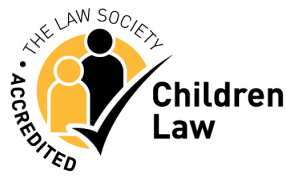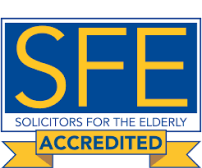Paul and another (Appellants) v Royal Wolverhampton NHS Trust (Respondent) [2024] UKSC 1
In a surprise judgement, the Supreme Court has handed down a ruling that Secondary Victims can no longer claim psychiatric injury due to negligent care by medical practitioners.
The appeal was heard by Lord Biggs, Lord Sales, Lord Leggatt, Lord Burrows, Lady Rose, Lord Richard, and Lord Carloway. Lord Burrows was the only dissenting judge.
The judges were asked to consider three conjoined appeals, as to whether an individual can make a claim for psychiatric injury caused by witnessing the death or another horrifying event of a close relative as a result of clinical negligence.
Witnessing a father collapse in the street
The first case of Paul relates to the young appellants who witnessed their father, Mr Paul, collapse in the street and suffer a cardiac arrest, and witnessed as paramedics performed chest compressions on their father, before being taken to hospital and declared dead on arrival. It was later found that the Defendant hospital had been negligent some months earlier in not diagnosing Mr Paul with coronary artery disease resulting in his death, and both appellants were claiming psychiatric injury due to witnessing the traumatic nature of his death.
Witnessing a daughter having resuscitation
The second case Polmear, related to a 6-year-old child, who due to a misdiagnosis died due to the effects of veno-occlusive disease. Both parents witnessed resuscitation attempts being made on their child, and the father attempted some CPR himself. Both parents were claiming damages for post-traumatic stress disorder and major depression following their daughter’s death.
Hearing a daughter’s dying moments on voicemail
In the third case of Purchase, a 20-year-old women had attended her GP practice twice, before seeking help at an out of hours clinic with her mother. At the out of hours clinic, she was examined by the Defendant who failed to diagnose pneumonia and sent her home with antibiotics and antidepressants. She continued to have severe symptoms and complained at one point of heart palpitations. Her mother found her lying motionless on her bed with the telephone in her hand, staring and not moving. Attempts at resuscitation of the 20-year-old failed and she was declared dead at the scene. Her mother realised she had a missed phone call from her daughter, and heard her daughter’s dying breaths on voicemail, which continued for 4 minutes 37 seconds. Her mother was claiming compensation as a secondary victim for psychiatric injury due to PTSD, severe anxiety, and depression.
The main issues for the court’s consideration
The main issues for the Court to consider were:
- Whether or not the rules of secondary victims, set out in previous case law (mostly road traffic accidents), applies to acts of negligence by a medical professional.
- Whether a doctor also owes a duty of care to the patient’s family to protect them from any psychiatric injury they may suffer due to the care given by a doctor.
The conclusion of the court
The court concluded that an ‘unexpected and unintended event which caused injury, by violent and external means to one or more primary victims”, must be witnessed in order to claim for secondary victim. A secondary victim must witness an ‘accident’ suffered by the primary victim in order for there to be a claim, it will not be enough that they are experiencing trauma due to a death.
Medical professionals need to be focused on their patients
The court felt that there was too much uncertainty surrounding secondary victim claims relating to clinical negligence and that liability should be kept within “reasonable bounds”. The court concluded that ‘the person whom doctors ought reasonably to have in contemplation when directing their minds to the care of the patient do not include members’ of the patient’s close family,’ and that the court “cannot impose duties and liabilities on the basis of sympathy, however strongly felt.” This means that medical professionals need to be focused on their patients and not have the family in mind when performing potentially life-saving treatment.
The Supreme Court has brought clarity to the application of the requirements in secondary victim claims arising from potential medical negligence cases, but in doing so, in Lord Burrow’s dissenting argument, the law has taken ‘an unwarranted backward step’ and departed ‘from the reasoning in almost all of reported medical negligence cases.’
A backward step
Is the Supreme Court’s approach too restrictive and insensitive to those who have witnesses a loved one die or suffer extremely at the hands of medical negligence? Was this the right decision considering the three appeals above?
We are disappointed by the decision of the Supreme Court and agree with Lord Burrows that this is a backward step. We are saddened by the stories of Clients who have suffered terribly psychiatrically as a result of witnessing the avoidable death of their loved ones due to negligence, and who now have no grounds to bring a claim for compensation.













